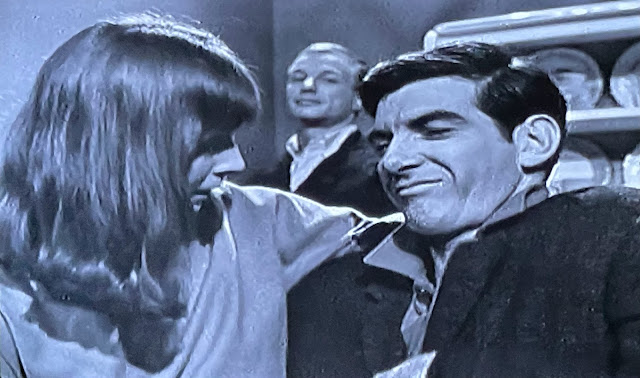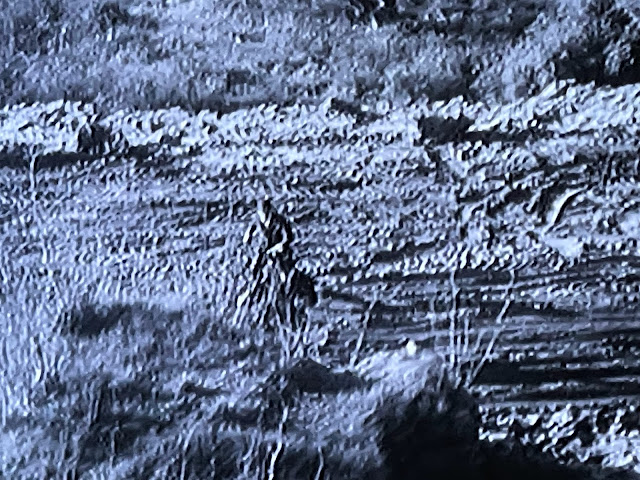I couldn’t help myself. As a staff member I am allowed to borrow volumes of magazines and I was looking for a specific issue of New Society in the wrong place and instead came across what I think is the full run of Nation. You know how some people are addicted to porn or Minecraft? I am addicted to things like this.
Fucking Nation had everything in the early 70s. Bob Ellis working out his future screenwriting career in television reviews. John Mant on urban planning. Sue Nichterlein on Graham Little. Wendy Bacon on going to prison for eight days.
Look it’s a little before my time, but it’s full of people who had a big impact on my first few decades, and I find it fascinating. I even find it fascinating that Nation saw it unremarkable to run a regular report from London via one Russell Lansbury with no apologies – whatever happened in England was as Australian as anything else.
It gets me thoroughly distracted. A small piece by Katie Martin on a very horrible topic sent me down a massive rabbit hole. It is called ‘A ten-dollar look’ and it’s about the towing service which took possession of the car in which Ronald Biggs’ oldest son, Nicholas, died. Biggs had escaped the country by this time but his wife Charmain (who soon after changed her name to Brent) was still in Melbourne (and would remain so until her death just under ten years ago). She crashed her car in Kilsyth. Reporters were charged ten dollars to view the car, I don’t even want to relay what was in it, and it’s 53 years later. I had never really thought about the Biggses living in Melbourne, but they did, for a few years, under the name Cook. They lived at 54 Hibiscus Road Blackburn North (yes, the house is still there and yes, of course I am going to go and look at it). So, rabbit hole for Charmain Brent and fascination about what she studied when she went to university later in life – looks like an arts degree. Fascination also about Katie Martin, who is not the Katie Martin who currently writes for the Financial Review or if she is she’s very well-preserved for a seventy-something-or-older-year-old.
The letters pages are amazeballs. Clement Semmler in defence of seat belts (he and another correspondent, Bill Purves, reacting to an anti-seatbelt letter from one Roger Page). An ongoing debate – for months – about phonetic spelling, mainly between D. L. Humphries of East Kew and Harry Lindgren of Narrabundah (with a few interjectors such as Daryl Haslam of Mt. Waverley).
Ellis’ television reviews are extraordinary. In the 6 February issue he writes about four new Australian programs shown in one night on Channel 7: The Group, which sounds like a forerunner to the notorious shambles The Unisexers* and featuring amongst others ‘oh yum Wendy Hughes, bosomy, breathy, ravishingly virginal, the dumb blonde of every man’s dreams’.** It was followed by a show called Catwalk which sounds extraordinary, in Ellis’ description a kind of glam soap opera the Americans claimed as their own 15 years later. ‘The idea that such adult content on Australian television is now a commercial proposition,’ says Ellis, ‘still has me quaking with pleasure.’ He has few good things to say about the next show, The Shockers, so I’ll pass over that, but the final of the four, E-Force One, sounds extraordinary – ‘a small band of dedicated men fighting to save our natural environment.’ Ellis describes it very amusingly and the fact that one of the characters, played apparently by Neva Carr Glyn (though this might be a joke or a mistake, as he also says she plays ‘the landlord’s swinging old mum’ in The Group) is called Elsie Meatsfoot. This is criticism at its finest IMO: ‘Apart from gigantic incompetence, the episode was smug, self-righteous, paranoid and woefully shabby-genteel, behaving as if it had a million-dollar budget in a squalid little studio, and brandishing one of the worst actresses in living memory, and it finally succeeded in doing the impossible, which was giving pollution a good name.’ Two weeks later Ellis is praising Humphries*** and Garland’s Wonderful World of Barry McKenzie to high heaven: ‘If only we are smart enough to try and live up to Barry McKenzie, instead of trying to live him down, crafty enough to absorb him as a part of our national soul, as laudable in his own way as the wild Welshman, the fighting Irishman or the crazy Yank, instead of trying to vomit him out of our national consciousness as if he was some mere incidental dirty dago…’ Gosh. I think we did.
I’m so sold on this volume of Nation I’m even pleased to see they gave The Female Eunuch to a man to review, I mean, just because it seems so 1971 to do so. What they might not have been expecting (but they ran it over almost 4/5 of a page of the 15 May issue) was Lillian Roxon’s summary of her career including a response to ‘Germain Greer and her double-edged dedication’ (in TFE) which she says ‘changed my life and is she ever proud of herself!’). Roxon was responding to an article by someone called ‘G. J. M.’ in the 17 April edition – ‘Third Floor Only’ – which pondered the state of women in journalism and which, she felt, misrepresented her career.
OK I’m half way through 1971. Mirka Mora is defending G. R. Lansell from John Reed in the letters page (‘Mr. John Reed forgets that Mr. Lansell who is twenty-eight years, eleven months and a few days, came only by change to dwell on art criticism… Mr. John Reed who is 300 years old and a few days…’ and McMahon is prime minister. I’ll come back to this. I may or may not bore you with the details.
* I actually hate it when people write about cultural phenomena/works of art in withering terms when they haven't actually personally experienced them. That's what I'm doing here and I hate it.
** Hughes was the main character but only in the pilot, after which she was recast.
*** I dug up my copy of Nation: The Life of an Independent Journal of Opinion 1958-1972, ed. K. S. Inglis 1989 and it says that the two men more responsible for Nation than anyone, T. M. Fitzgerald and George Munster, were introduced by Humphries at 'Lorenzini's, a wine bar and coffee shop in lower Elizabeth Street', presumably in the mid-to-late 1950s. Humphries said to Fitzgerald, 'I want you to meet a friend of mine who's a genius'. (p. 8).














